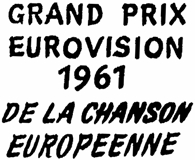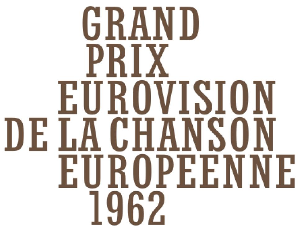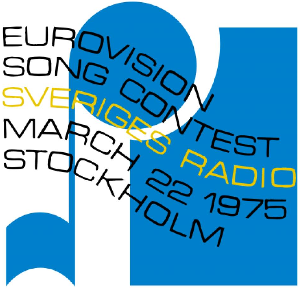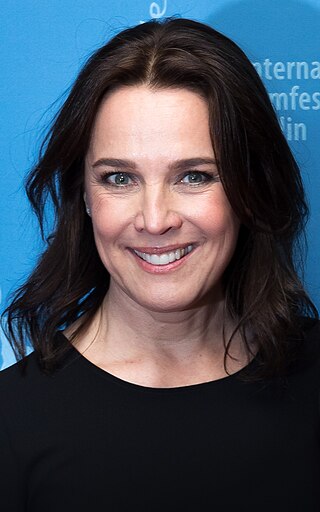This article needs additional citations for verification .(December 2022) |
| |||||
| Decades: | |||||
|---|---|---|---|---|---|
| See also: | |||||
The following lists events that happened during 1993 in the Grand Duchy of Luxembourg.
This article needs additional citations for verification .(December 2022) |
| |||||
| Decades: | |||||
|---|---|---|---|---|---|
| See also: | |||||
The following lists events that happened during 1993 in the Grand Duchy of Luxembourg.
The Eurovision Song Contest, often known simply as Eurovision, is an international song competition organised annually by the European Broadcasting Union. Each participating country submits an original song to be performed live and transmitted to national broadcasters via the Eurovision and Euroradio networks, with competing countries then casting votes for the other countries' songs to determine a winner.

Luxembourg, also known as Luxembourg City, is the capital city of Luxembourg and the country's most populous commune. Standing at the confluence of the Alzette and Pétrusse rivers in southern Luxembourg, the city lies at the heart of Western Europe, situated 213 km (132 mi) by road from Brussels and 209 km (130 mi) from Cologne. The city contains Luxembourg Castle, established by the Franks in the Early Middle Ages, around which a settlement developed.

The Eurovision Song Contest 1961 was the 6th edition of the annual Eurovision Song Contest. Once again, the contest was held in the French seaside city of Cannes, having also hosted the 1959 edition. Organised by the European Broadcasting Union (EBU) and host broadcaster Radiodiffusion-Télévision Française (RTF), the contest was again held at the Palais des Festivals et des Congrès on Saturday 18 March 1961, becoming the first contest to take place on a Saturday evening, a tradition that has continued ever since. The show was directed by Marcel Cravenne and again hosted by Jacqueline Joubert, who had also hosted in 1959.

The Eurovision Song Contest 1962 was the 7th edition of the annual Eurovision Song Contest. It took place in Luxembourg City, Luxembourg, following the country's victory at the 1961 contest with the song "Nous les amoureux" by Jean-Claude Pascal. The contest was organised by the European Broadcasting Union (EBU) and host broadcaster Compagnie Luxembourgeoise de Télédiffusion (CLT), and was held at the Villa Louvigny on Sunday 18 March 1962 hosted by the Luxembourgish speaker Mireille Delannoy. This remains the last time that the final of the contest was not held on a Saturday, as since 1963 the final of the contest has consistently been held on a Saturday evening.

The Eurovision Song Contest 1966 was the 11th edition of the annual Eurovision Song Contest. It took place in Luxembourg City, Luxembourg, following the country's victory at the 1965 contest with the song "Poupée de cire, poupée de son" by France Gall. Organised by the European Broadcasting Union (EBU) and host broadcaster Compagnie Luxembourgeoise de Télédiffusion (CLT), the contest was held at the Villa Louvigny on 5 March 1966 and was hosted by Luxembourgish television presenter Josiane Chen.

The Eurovision Song Contest 1993 was the 38th edition of the Eurovision Song Contest, held on 15 May 1993 at the Green Glens Arena in Millstreet, Ireland. Organised by the European Broadcasting Union (EBU) and host broadcaster Radio Telefís Éireann (RTÉ), and presented by Fionnuala Sweeney, the contest was held in Ireland following the country's victory at the 1992 contest with the song "Why Me?" performed by Linda Martin.

The Eurovision Song Contest 1984 was the 29th edition of the Eurovision Song Contest, held on 5 May 1984 in the Théâtre Municipal in Luxembourg City, Luxembourg. Organised by the European Broadcasting Union (EBU) and host broadcaster Radio Télévision Luxembourg (RTL), the contest was held in Luxembourg following the country's victory at the 1983 contest with the song "Si la vie est cadeau" by Corinne Hermès. The event was presented by Désirée Nosbusch, who, at 19 years old, remains the youngest person to have hosted the contest as of 2024.

The Eurovision Song Contest 1973 was the 18th edition of the annual Eurovision Song Contest. It took place in Luxembourg City, Luxembourg, following the country's victory at the 1972 contest with the song "Après toi" by Vicky Leandros. Organised by the European Broadcasting Union (EBU) and host broadcaster Compagnie Luxembourgeoise de Télédiffusion (CLT), the contest was held at the Grand Théâtre on 7 April 1973 and was hosted by German television presenter Helga Guitton.

The Eurovision Song Contest 1972 was the 17th edition of the annual Eurovision Song Contest. It took place in Edinburgh, Scotland, United Kingdom and was organised by the European Broadcasting Union (EBU) and host broadcaster British Broadcasting Corporation (BBC), who agreed to stage the event after the Monégasque broadcaster Télé Monte Carlo (TMC), who won in 1971, was unable to meet the demands of hosting the event and could not find a suitable venue. The contest was held at the Usher Hall on 25 March 1972 and was hosted by Scottish ballet dancer Moira Shearer. Eighteen countries took part in the contest, the same countries as the previous year.

The Eurovision Song Contest 1974 was the 19th edition of the Eurovision Song Contest, held on 6 April 1974 in the Dome in Brighton, United Kingdom. Organised by the European Broadcasting Union (EBU) and host broadcaster the British Broadcasting Corporation (BBC), and presented by Katie Boyle, this was the fifth time that the United Kingdom had staged the contest.

The Eurovision Song Contest 1975 was the 20th edition of the Eurovision Song Contest, held on 22 March 1975 in the Sankt Eriks-Mässan in Stockholm, Sweden. Organised by the European Broadcasting Union (EBU) and host broadcaster Sveriges Radio (SR), and presented by Karin Falck, the contest was held in Sweden following the country's victory at the 1974 contest with the song "Waterloo" by ABBA.
The Music of Luxembourg is an important component of the country's cultural life. The new Philharmonie concert hall provides a venue for orchestral concerts while opera is frequently presented in the theatres. Rock, pop and jazz are also popular with a number of successful performers. The wide general interest in music and musical activities in Luxembourg can be seen from the membership of the Union Grand-Duc Adolphe, the national music federation for choral societies, brass bands, music schools, theatrical societies, folklore associations and instrumental groups. Some 340 music groups and associations with over 17,000 individual members are currently represented by the organization.

Luxembourg has participated in the Eurovision Song Contest 38 times since its debut at the first contest in 1956. The current Luxembourgish participant broadcaster in the contest is RTL Lëtzebuerg (RTL). The nation participated in all but one event between 1956 and 1993, only missing the 1959 contest. After finishing among the bottom seven countries in 1993, Luxembourg was relegated and prevented from competing in 1994. The nation declined to return to the contest in 1995, and would make no further appearances over the next three decades. The country returned to the event for the first time in 31 years in 2024.

Monaco has participated in the Eurovision Song Contest 24 times since its debut in 1959. The country's only win in the contest came in 1971, with "Un banc, un arbre, une rue" performed by Séverine. As a result, Monaco was expected to host the contest in 1972, but it ultimately declined. The Monégasque participant broadcaster in the contest was Télé Monte-Carlo (TMC). Monaco is the only microstate to have won the contest to date.
The following lists events that happened during 1991 in the Grand Duchy of Luxembourg.
Luxembourg was represented at the Eurovision Song Contest 1965 with the song "Poupée de cire, poupée de son", written by Serge Gainsbourg, and performed by French singer France Gall. The Luxembourgish participating broadcaster, the Compagnie Luxembourgeoise de Télédiffusion (CLT), internally selected its entry for the contest. The song went on to win the contest, bringing Luxembourg their second Eurovision victory.
Luxembourg participated in the Eurovision Song Contest 1989 with the song "Monsieur" written by Maggie Parke, Gast Waltzing, Yves Lacomblez and Bernard Loncheval. The song was performed by the band Park Café, which was internally selected by the Luxembourgish broadcaster Radio Télévision Luxembourg (RTL) in February 1989 to represent Luxembourg in Lausanne, Switzerland. RTL organised a three-song national final in order to select Park Café's song and "Monsieur" emerged as the winning song following a public televote held via television and radio on 5 and 6 March 1989.

Désirée Nosbusch also known as Désirée Becker, is a Luxembourgish actress and television presenter. She was the host of the Eurovision Song Contest 1984.